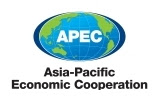| ||||||||||||||
| ||||||||||||||
| ||||||||||||||
| ||||||||||||||

politikinewsaaa.blogspot.com,η Χρήσιμη Εφημερίδα,ΠΟΛΙΤΙΚΗ,POLITIKI,POLITIKI NEWSPAPER,politikinews,ΠΟΛΙΤΙΚΗ ΕΦΗΜΕΡΙΔΑ,"POLITIKI" news,news,"ΠΟΛΙΤΙΚΗ" Εφημερίδα,Ειδήσεις,Новости Греция, Nachrichten aus Griechenland, Nouvelles de la Grèce, أخبار من اليونان,, 來自希臘的消息 , ギリシャからのニュース, Новини з Греції, Notícias da Grécia, חדשות מיוון, Notizie dalla Grecia, Nyheter fra Hellas,
| ||||||||||||||
| ||||||||||||||
| ||||||||||||||
| ||||||||||||||

 |  |
People need to be at the heart of policy measures in addressing the current health and economic challenges in the region, said a recent report by the APEC Business Advisory Council (ABAC).
The Report to Economic Leaders launched on Thursday is presented annually by ABAC, the private-sector arm of APEC, to advise leaders and other APEC officials on issues of interest to business. The report conveyed the council’s theme for this year, “People, Place and Prosperity.”
“In these challenging times, when the need for universal vaccination is acute, we must put people first,” said Rachel Taulelei, the 2021 Chair of ABAC. “Getting everyone vaccinated is key to overcoming the health crisis, enabling us to reopen borders safely and seamlessly, and also the critical work of restarting the engines for growth.”
“Our challenges do not end there; we need to move forward in a way that respects the environment in which we live, and we have to advance prosperity in a way that is not just sustainable, but also inclusive,” added Taulelei.
This year’s report set out 43 recommendations for leaders covering five pillars of regional economic integration, sustainability, inclusion, digital and the economy. The report also included separate sections on border reopening, the World Trade Organization (WTO), the council’s response to climate change through climate leadership principles for businesses, trade in renewable energy and an Indigenous business leaders’ statement of priorities.
In order to foster the well-being of people, ABAC members called for capacity building and structural reform efforts to empower small businesses, women and Indigenous communities.
The council agreed in August on a set of guidelines called the Climate Leadership Principles to guide its own climate response and to encourage businesses in the Asia-Pacific region to adopt practices to address climate change at the enterprise level. ABAC members also developed a framework for trade and investment in renewable energy and called for a broader adoption in APEC.
“In order to safeguard the place in which we live, sustainability must drive all of APEC’s activity,” added Taulelei. “Achieving a digitally-enhanced, trade-friendly and sustainable food system is also foundational to recovery and building a better future.”
Taulelei said that APEC can demonstrate real leadership as it has done so effectively in the past by championing a credible and relevant WTO and building toward the realization of the Free Trade Area of the Asia-Pacific (FTAAP).
“There is an urgent need to realize the potential of the digital economy through upgrading skills, investing in infrastructure and enabling more seamless, interoperable digital trade. These actions need to be supported by ongoing efforts at structural reform,” she added.
Dr Rebecca Sta Maria the APEC Secretariat’s Executive Director welcomed the recommendations from ABAC, noting that the cooperation between public and private sector has become even more crucial as the region builds back its resilience and dynamism.
“Commerce is the lifeblood of the region and business is the engine of economic growth,” Dr Sta Maria concluded. “Businesses have played an integral role in expanding the region’s prosperity and they will play a significant role in stimulating not only economic recovery, but also growth that is inclusive and sustainable.”
To read the full report, visit this link
For further details, please contact:
Stephen Jacobi, +64 29 472 5502, stephen@jacobi.co.nz (in New Zealand)
Antonio Basilio, + 63 917 849 3351, abacsec@pfgc.ph (in the Philippines)
Masyitha Baziad +65 9751 2146 at mb@apec.org
Michael Chapnick +65 9647 4847 atmc@apec.org
| |||||
|
|
|

